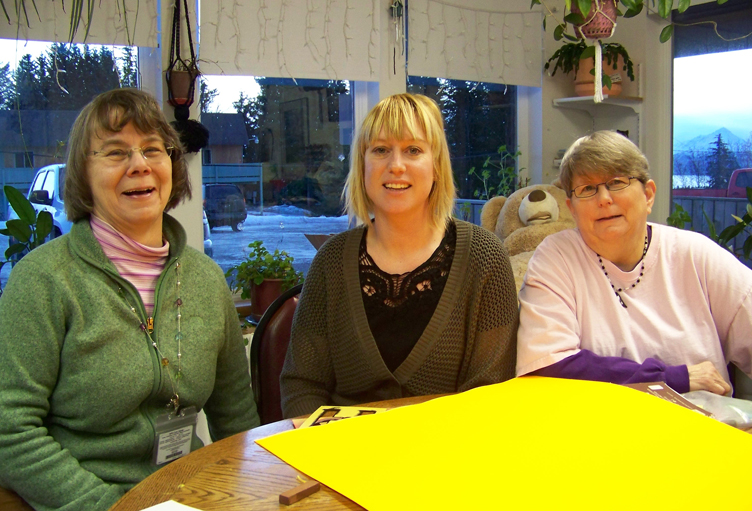Once asked by an interviewer for the most important piece of advice she had for caregivers, Kate Mulgrew, the actress who played the part of Capt. Kathryn Janeway in the TV series “Star Trek” and is a member of the National Advisory Committee of the Alzheimer’s Association, offered the following:
“Whatever else you are doing, I would say to them, reach down deep and acknowledge that you are extremely special. You are one of the exalted ones. In your exhaustion and in your occasional moments of despair and when it looks like nobody else gives a damn, you have to know, in a sort of mystical way, that you are indeed an exalted one.”
Feeling “extremely special,” let alone just OK, can seem impossible when the hours are filled with caring for someone unable to care for themselves. Ask anyone who has been there, like Mulgrew and the estimated 15 million individuals in the United States who care for someone with Alzheimer’s, and they will tell you it’s true.
Locally, a support group for caregivers of loved ones with dementia is taking shape to honor the vital role caregivers play, answer questions, connect them with resources, benefit from others’ experience and share with others their own tips, frustrations and joys. It is initially planned to meet twice a month during February, March and April, with the possibility of extending it.
The group is being coordinated by three local women with caregiving experience: Pam Hooker is a care coordinator for South Peninsula Hospital, Vanessa Bales is a certified nursing assistant, and Mary Jo Gates manages Homer Senior Citizen’s adult day services.
“Mary Jo has a lifetime of caregiving (experience). Vanessa has experience in community groups and organizations in New Zealand from when she hails. She brings a wealth of experience. I have 30-plus years in group facilitation, program development and direct services,” said Hooker.
“Further, we are supported by The Alzheimer’s Resource Center of Alaska, who will be sending down educational materials, as well as dynamic speakers to augment our groups.”
Local caregivers like Nancy Branch also are joining the effort.
About eight years ago, Branch began “walking the journey” that began with her husband’s lapses in memory and progressed to the point two years ago when he exhibited aggressive and dangerous behaviors associated with advanced Alzheimer’s and requiring police intervention. Between those points came years of research on Branch’s part. There were visits to doctors, evaluations, surgery and lots of decisions to be made. Finally, faced with the need to have her husband cared for outside the home and without a facility available in Alaska, Branch located one in Washington state where her husband “is getting wonderful care.”
“He knows who I am, but he doesn’t know how I’m related to his life,” said Branch, who visits her husband every couple of months.
In addition to the decisions she made for her husband, Branch also has faced some difficult ones for herself.
“I don’t know how many times I’ve heard that caregivers do not survive the person they’re taking care of,” she said. “I decided that wasn’t going to be me. … I could go two ways. I could be devastated and depressed or I could just pick up the ball and carry on. So, that’s what I’ve chosen to do.”
Drawing from her experience, Branch is “interested in helping someone else who is new to this. There will be people like me who will follow this trail, and probably are right now,” she said.
“I don’t know how I can help, but I’m more than willing to do so.”
Suzannah Webster’s experience as a caregiver offers another perspective. For a time she shared her home with a family member who has dementia and now lives at Friendship Terrace, Homer Senior Citizens’ assisted living facility. Webster has been challenged to understand dementia and her “fluctuating role” as caregiver that included the areas of personal hygiene, diet, medication and providing social contact.
With her family member’s move to Friendship Terrace, those responsibilities had to be redefined.
“It’s a really steep learning curve,” said Webster of figuring out her changing role as caregiver.
McKibben Jackinsky can be reached at mckibben.jackinsky@homernews.com.


